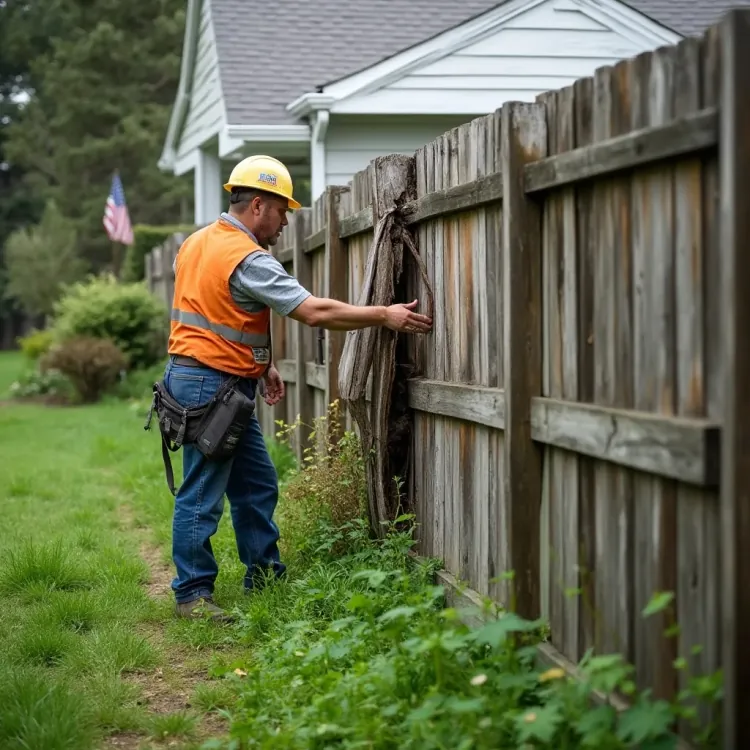Lawn Care Business Insurance: Protect Your Business and Grow with Confidence
Protect your business with lawn care business insurance. Learn about essential coverage types, benefits, costs, and tips for choosing the right policy to safeguard your lawn care company.

Starting a lawn care business can be incredibly rewarding. You get to work outdoors, help customers beautify their properties, and build a thriving enterprise. However, like any other business, there are risks involved. Whether it's accidental property damage, an injured employee, or a lawsuit, unforeseen issues can quickly derail your hard work. This is where lawn care business insurance becomes crucial.
Not only does insurance protect your business financially, but it also helps you build trust with clients, land bigger contracts, and operate with peace of mind. But how does it all work? What types of coverage do you need, and how do you choose the right policy? Let’s dive in and explore why having the right insurance is as essential as keeping your mower blades sharp.
Why Lawn Care Business Insurance Matters
Running a lawn care business is full of surprises, but not all surprises are pleasant. Picture this: you're mowing a client's lawn, and a rock flies out, shattering their window. Or maybe an employee trips over equipment and gets injured on the job. These scenarios may seem minor, but the financial fallout can be significant.
Lawn care business insurance is designed to protect you from these risks. Without it, you'll be responsible for covering damages, medical bills, or legal fees out of pocket. This could lead to financial strain—or even force you to close your business.
Beyond protection, having insurance lends credibility to your business. Many clients, especially commercial ones, may require proof of insurance before hiring you. By having a policy in place, you're showing that you take your business (and their property) seriously.

Types of Insurance Coverage for Lawn Care Businesses
When it comes to lawn care business insurance, there’s no one-size-fits-all solution. Different businesses have unique needs depending on their size, services, and clientele. Here are the main types of coverage to consider:
General Liability Insurance
This is the foundation of any business insurance policy. General liability insurance covers:
- Property damage: If your equipment damages a client’s property, like breaking a sprinkler system or cracking a driveway.
- Bodily injury: If someone is injured because of your work, such as slipping on wet grass.
- Legal costs: If a client sues you for negligence or harm caused by your services.
For example, if a client claims you damaged their landscaping, general liability insurance could cover the repair costs and legal fees.
Workers' Compensation Insurance
If you have employees, this type of insurance is likely required by law. Workers' compensation covers medical bills, lost wages, and rehabilitation costs if an employee gets injured on the job.
Think about how often employees handle heavy equipment or work in unpredictable weather conditions—accidents can happen. Workers' compensation protects both your team and your business.
Commercial Auto Insurance
Do you use a truck or trailer to transport equipment? Then you need commercial auto insurance. This coverage protects your business vehicles in case of accidents, theft, or damage.
Personal auto insurance usually won’t cover vehicles used for business purposes. A commercial policy ensures you're covered if there's an accident while driving to a job site.
Equipment Insurance
Your tools and machinery are the backbone of your business. Equipment insurance covers repair or replacement costs if your gear is damaged, lost, or stolen.
For example, if your mower is stolen from a job site, this coverage helps you get back to work without a huge financial hit.
Professional Liability Insurance
Also called errors and omissions insurance, this covers claims of negligence or mistakes in your services.
For instance, if a client claims you improperly treated their lawn, causing damage to their grass, professional liability insurance can cover the costs of resolving the issue.
Umbrella Insurance
If you want extra peace of mind, consider an umbrella policy. This provides additional coverage that kicks in when your other policies reach their limits.

How to Choose the Right Lawn Care Business Insurance
Selecting the best insurance policy for your lawn care business can feel overwhelming, but it doesn’t have to be. Here are some tips to guide you:
Assess Your Risks
What are the biggest risks your business faces? Consider the services you offer, the size of your team, and the types of clients you serve. Identifying these risks will help you determine which coverage is most important.
Compare Policies and Providers
Not all insurance policies are created equal. Shop around and compare quotes from multiple providers. Look for companies that specialize in small business insurance or have experience with lawn care businesses.
Check for Customization
Many insurers offer customizable packages that allow you to combine different types of coverage. This can save you money and ensure you’re not paying for coverage you don’t need.
Understand Your Coverage Limits
Pay attention to the limits and exclusions of each policy. Make sure the coverage is sufficient to protect your business in the worst-case scenario.
Look for Discounts
Some insurers offer discounts for bundling policies, having a clean claims history, or taking safety training courses.
The Cost of Lawn Care Business Insurance
The cost of lawn care business insurance varies based on factors like:
- The size of your business
- The number of employees
- The types of services you offer
- The coverage limits you choose
- Your location and the risks in your area
On average, small lawn care businesses can expect to pay between $400 and $1,500 annually for general liability insurance. Adding other types of coverage, like workers' compensation or commercial auto insurance, will increase your total costs.
While insurance is an investment, consider how much it would cost to cover a major accident or lawsuit out of pocket. The peace of mind is well worth it.
Benefits of Having Lawn Care Business Insurance
If you’re still on the fence about whether you need insurance, consider these benefits:
- Financial protection: Avoid paying out-of-pocket for damages, injuries, or legal claims.
- Client trust: Many clients prefer or even require businesses to have insurance.
- Business growth: Having insurance can make your business eligible for larger contracts.
- Peace of mind: Focus on growing your business without worrying about unexpected setbacks.
Common Claims in the Lawn Care Industry
Understanding the most frequent claims in your industry can help you see how insurance protects your business. Here are some examples:
| Claim Type | Example Scenario |
|---|---|
| Property Damage | A mower damages a client's fence or sprinkler system. |
| Bodily Injury | A passerby is injured by flying debris from trimming or mowing. |
| Equipment Damage | A weed eater is stolen or damaged on a job site. |
| Auto Accidents | A company truck is involved in a collision while traveling to a job. |
| Negligence Claims | A client accuses you of improperly applying fertilizer, damaging their lawn. |
Tips for Preventing Claims in Your Lawn Care Business
While insurance provides protection, it’s always better to avoid problems in the first place. Here are some strategies to minimize risks:
- Train your team: Ensure employees know how to use equipment safely and effectively.
- Maintain your gear: Regularly inspect and service your tools to prevent malfunctions.
- Communicate with clients: Set clear expectations and document agreements to avoid misunderstandings.
- Follow safety protocols: Wear protective gear, secure equipment during transport, and be mindful of weather conditions.
How to File a Claim
If you need to file an insurance claim, follow these steps to streamline the process:
- Document the incident: Take photos, gather witness statements, and write down the details.
- Notify your insurer: Contact your provider as soon as possible to report the claim.
- Provide necessary information: Submit any required documents, like proof of ownership or medical bills.
- Cooperate with the investigation: Answer any questions and provide additional information if needed.
- Follow up: Stay in touch with your insurer to ensure the claim is processed promptly.
Final Thoughts
Insurance might not be the most exciting part of running a lawn care business, but it’s one of the most important. Think of it as a safety net that keeps your business thriving, even when things go wrong. By choosing the right lawn care business insurance, you’re not just protecting your bottom line—you’re investing in the future of your business.
Sources
- Small Business Administration
- Insurance Information Institute
- National Association of Landscape Professionals
- TrustedChoice
- LawnStarter Blog
FAQs
1. Do I need lawn care insurance if I’m a solo operator?
Yes! Even solo operators face risks like property damage or lawsuits. Insurance ensures you’re protected financially.
2. Can I deduct insurance costs on my taxes?
In most cases, business insurance premiums are tax-deductible. Consult a tax professional for specific advice.
3. What happens if I don’t have insurance?
Without insurance, you’ll be personally responsible for covering damages, injuries, or lawsuits, which can be costly.
4. How do I prove I have insurance to clients?
Your insurance provider can issue a certificate of insurance (COI) that you can share with clients.
5. Can I adjust my coverage as my business grows?
Absolutely. Many insurers allow you to update or expand your policy as your business needs change.
What's Your Reaction?



















